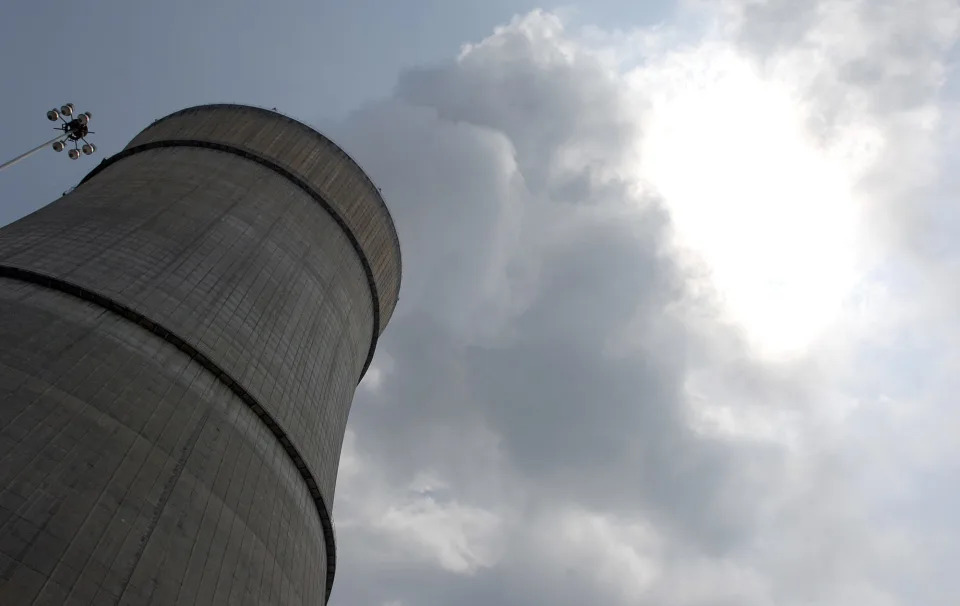Mississippi lawmakers, energy experts agree more nuclear power is in state's future. See why
Grant McLaughlin, Mississippi Clarion Ledger
Wed, October 2, 2024
Energy sector experts and representatives from some of Mississippi's largest energy providers want to increase nuclear energy production in and around the state, and they aren't the only ones.
During a meeting with the Mississippi Senate Energy Committee Tuesday at the State Capitol, representatives from Entergy and the Tennessee Valley Authority spoke with lawmakers about the importance and utility of new nuclear power technology to meet demands from various industries in and out of Mississippi such as steel manufacturing and data centers.
Lawmakers also wanted to know what they can do now to entice developments of small nuclear reactor plants, which are essentially more compact reactors that can produce more power.
"Obviously, nuclear is the future," Senate Energy Committee Chairman Joel Carter, R-Gulfport, said. "I thinkMississippi has decided to say, 'Hey, y'all watch this,' and now we'll see what happens."
Experts from Nuscale Power said more modern energy production sites can have as many as 12 small reactors to a plant and produce more than 1,000 megawatts of power while only using a portion of the land a traditional nuclear power plant would need.
Brett Favre tries to expand lawsuit: Brett Favre attempts to add Mississippi Auditor's book to defamation lawsuit

Grand Gulf Nuclear Station in Port Gibson
From a cost-to-build perspective, these types of nuclear power plant would take about three years to build at a significantly reduced overall price tag, Nuscale Power Executive Vice President of Business Development Clayton Scott said.
"Mississippi is a great state to build something, and so we think we're open minded to working with you guys to figure out what (projects) make sense," Scott said.
As for what the state can do now to attract these projects, Scott and others said tax incentives, supportive state policy and investment, Nuclear Regulatory Commission approved build sites, land with access to rivers, waterways, rail and highways are essential.
Read about other committee hearings Crumbling roads and bridges in MS need more revenue now, leaders say. Costly problem looms
Scott said his company is actively looking at 12 sites throughout the United States.
Currently, there are 93 nuclear power plants in the United States and one, the Grand Gulf Nuclear Station, which is owned by Entergy, is located near Port Gibson. The plant has an operation license ending in 2044 and an option to extend it to 2066.
According to the United States Department of Energy, nuclear energy is the second largest form of clean energy production. Nuclear power also does not produce carbon emissions, uses less land as compared to other plants such as coal or gas plants and leaves little waste product.
The power itself is created traditionally by fission, a process for splitting atoms. The heat from that atomic reaction is then used to create steam, which then spins a turbine that creates electricity.
Jim Smiley, of Entergy, told lawmakers the company doesn't want to pioneer new nuclear technology in the state, but it already has a federally approved nuclear plant site in addition to Grand Gulf Nuclear Station, and would greenlight a plant project if it doesn't cost its customers more on their monthly bills and is a benefit to the region.
"We firmly believe that nuclear is our future and new nuclear specifically is in our future," Smiley said. "It's not really a matter of if, it's a matter of when and how do we get there."
TVA representative Dan Pratt also showed a chart showing that as of 2023, nuclear power accounted for 42% of its grid, which encompasses Northeast Mississippi. Pratt said the future of nuclear power should not be ignored as TVA looks to significantly decrease its carbon footprint by 2050.
"We do believe that ultimately to get to 2050 and truly be able to get to extreme decarbonization, nuclear has got to be part of that," Pratt said. "That's got to be part of the national energy strategy, and TVA is part of that, obviously, as an advocate and an operator of nuclear power."
The TVA operates three nuclear power plants already, with one in Alabama and two in Tennessee.
Grant McLaughlin covers state government for the Clarion Ledger. He can be reached at gmclaughlin@gannett.com
No comments:
Post a Comment